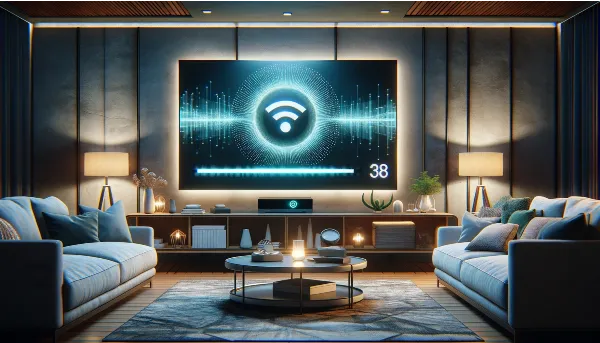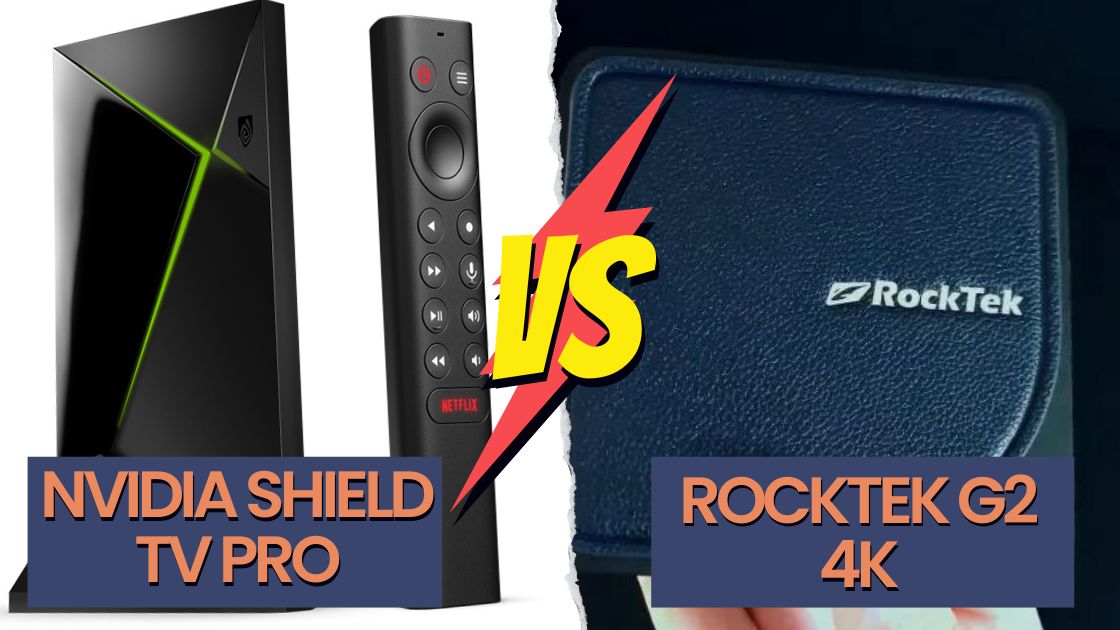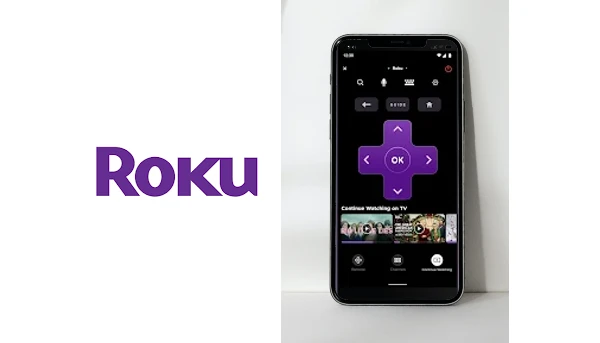The digital era has ushered in an age where streaming content on smart TV boxes has become a mainstay in our entertainment systems. Whether it’s binge-watching a series, catching the latest movie, or streaming a live event, the experience rests heavily on one critical factor: internet speed. In this article, we dissect the pivotal role that internet speed plays in the performance and functionality of smart TV boxes, ensuring that you, as a user, are equipped with the knowledge to optimize your streaming experience.

What is Internet Speed and What Are Its Units?
When discussing internet speed, one enters a sphere laden with technical jargon. Yet, it’s fundamental to grasp this terminology to make informed decisions. Internet speed is commonly measured in megabits per second (Mbps) or, for faster connections, gigabits per second (Gbps). These units indicate the rate at which data is transferred from the internet to your TV box or vice versa. It’s important to note, however, that these speeds are not always consistent and can fluctuate based on a variety of factors.
| Unit | Abbreviation | Description | Typical Use Cases |
|---|---|---|---|
| Megabit per second | Mbps | One million bits per second | Standard home internet connections, video streaming, web browsing |
| Gigabit per second | Gbps | One billion bits per second | High-speed internet connections, online gaming, large file transfers |
Factors That Affect Internet Speed for Smart TV Boxes
No single element dictates the internet speed you receive on your streaming media player. It’s a complex interplay of factors that can either bolster or impede your streaming capabilities. Among these influencing factors are network congestion, hardware capabilities, such as the efficiency of your smart TV box and router, and software configurations which could include your network settings or even the streaming service’s app you are using.
Bandwidth, the channel’s capacity to transmit data, is highly significant, particularly when multiple devices are connected to the network simultaneously. Think of it as a highway; the more cars (data) there are, the slower the traffic (speed) moves.
Minimum Internet Speed Requirements for Streaming
To stream content without relentless buffering or quality loss, certain minimum speed thresholds must be met. Here’s what you should aim for, depending on the video quality you’re seeking:
| Video Quality | Recommended Speed |
|---|---|
| SD (480p) | 3-5 Mbps |
| HD (720p) | 5-10 Mbps |
| Full HD (1080p) | 10-20 Mbps |
| 4K | 25-50 Mbps |
These speeds are the starting point for comfortable viewing, but for the optimum experience, especially on platforms supporting 4K streaming, higher speeds are often necessary.
How Internet Speed Affects Video Streaming Quality
Video streaming quality is arguably the aspect most affected by internet speed. Slow internet can result in lower video resolution, persistent buffering, and in some cases, complete disconnection from the streaming service. These issues manifest in a less-than-ideal viewing experience, often characterized by pixelation and long loading times.
A robust and consistent internet connection is paramount to enjoy the high-definition content available on platforms like Netflix or utilizing devices such as the NVIDIA Shield TV. Hence, investing in a quality internet package that meets these demands is essential for any streaming enthusiast.
The Difference Between Download and Upload Speeds
It’s not just the speed of the internet that matters, but also the direction. Download speed refers to how quickly data is pulled from the internet to your device, which is crucial for streaming content to your smart TV box. Conversely, upload speed is the rate at which data is sent from your device to the internet, relevant for activities like video conferencing or online gaming on platforms that also utilize smart TV boxes, such as gaming on devices like the Raxxio MAG522.
Download Speed is paramount for:
- Watching movies and shows
- Downloading games or apps on your smart TV box
While Upload Speed is significant for:
- Live streaming your gameplay
- Conducting video calls through your device
Evaluating Your Current Internet Speed
Do you know if your internet speed is sufficient for your streaming device? Conducting an internet speed test can give you a sense of where your connection stands. Use reliable online tools to test and confirm that the delivered speed aligns with your ISP’s promise and meets the demands of your smart TV box.
Tip: Perform speed tests at different times of the day to get a more comprehensive assessment of your connection’s performance.
Wired vs. Wireless Connections for Smart TV Boxes
The debate between the reliability of wired (Ethernet) versus wireless (Wi-Fi) connections is ongoing. While Ethernet offers stability and often faster speeds, Wi-Fi provides the flexibility of device placement. For smart TV boxes, such as the highly-regarded NVIDIA Shield TV Pro, which supports both connection types, the choice may come down to your specific setup and preferences.
Ethernet Connections ensure:
- Greater speed consistency
- Reduced latency
- Better security
Wi-Fi Connections offer:
- Ease of setup and use
- The convenience of location flexibility
The Role of Wi-Fi Signal Strength and Stability
Wi-Fi signal strength and its stability play a major role in the performance of your smart TV box. Weak Wi-Fi signals can result in slow speeds and disrupted connections. It is crucial to place your Wi-Fi router optimally and consider using Wi-Fi extenders or mesh networks for larger homes to ensure a robust connection to devices like the T95 Android TV Box.
Quick Tip: Use an app or device to measure the Wi-Fi signal strength around your smart TV box to identify potential weak spots.
Internet Speeds for Gaming on Smart TV Boxes
With the rise of cloud gaming and online multiplayer experiences through smart TV boxes, adequate internet speeds are a must. Slow speeds can hinder your gaming experience with higher latency and lag, which are detrimental in fast-paced games. Different gaming types will require varying speeds to function smoothly.
| Gaming Type | Required Speed |
|---|---|
| Casual | 3-6 Mbps |
| Multiplayer | 6-10 Mbps |
| Competitive | 10+ Mbps |
| Cloud Gaming | 15+ Mbps |
| VR Gaming | 35+ Mbps |
For a premier gaming experience on devices like ROCKTEK G2 4K Android TV Box, consider these speed requirements.
Smart Home Devices and Their Impact on Internet Speed
A plethora of smart home devices can strain your network, affecting the internet speed available for your smart TV box. Each device, from your smart thermostat to security cameras, demands a slice of the bandwidth pie. The challenge is balancing the network’s load to avoid a compromise in streaming quality on your TV box.
To manage these devices effectively:
- Prioritize your devices’ bandwidth allocation
- Upgrade to routers that handle multiple connections better
- Schedule device updates during off-peak hours
ISP Throttling: What It Is and How It Affects You
ISP Throttling refers to the intentional slowdown of internet speed by your service provider, often during peak usage times or when certain data thresholds are met. This practice can profoundly affect your streaming experience, causing delays and buffering. If you suspect throttling, you can use a VPN to help bypass the restrictions and improve your streaming performance on devices like Chromecast with Google TV 4K.
How to Improve Your Internet Connection for Smart TV Boxes
Lag and buffering need not be the end of your streaming journey. There are several ways to enhance your internet connection for a smoother experience with your smart TV box:
- Invest in a high-quality router
- Use network extenders for larger spaces
- Regularly update the firmware of your devices
- Limit the number of connected devices if possible
The Rise of 4K Streaming and Higher Internet Speed Demands
As content in 4K resolution becomes the new standard, it brings with it the need for faster internet speeds. To stream 4K content without interruption on advanced devices like the Dune HD Pro Vision 4K Solo, your network should be equipped to handle this high bandwidth requirement.
Latency Issues: What They Are and How They Impact Streaming
Latency measures the time it takes for data to travel from your smart TV box to the server and back. High latency can mean delays and out-of-sync audio and video. It’s often felt during live events or while playing online games where real-time interaction is essential.
For lower latency:
- Use a wired Ethernet connection if possible
- Close unnecessary background apps or services
- Opt for an ISP with faster routing to servers
Dealing with Data Caps and Streaming
Many ISPs implement data caps, limiting the amount of data you can use monthly. Exceeding these caps leads to extra charges or throttled speeds. To manage your data effectively and prevent overage fees, regularly monitor your usage, especially if you enjoy content-rich streaming on best-rated Android TV boxes.
The Future of Internet Speed and Smart TV Boxes
As technology continues to advance, we can expect to see an uptick in the demand for even faster internet speeds, with innovations like 5G and fiber-optic connections shaping the future. The impact of these developments on smart TV boxes will undoubtedly open up new vistas for entertainment and interactivity.
Comparing Smart TV Box Models and Their Internet Speed Handling
Different smart TV box models have varying capabilities when it comes to handling internet speeds. Our comprehensive reviews offer insights into which boxes perform best under different network conditions.
The Importance of Regular Internet Speed Tests
Performing regular internet speed tests helps in maintaining a high level of performance from your smart TV box. It’s a vital habit that ensures you’re getting what you pay for from your ISP and that your Apple TV box or similar devices remain in top streaming condition.
FAQs
How do I check my internet speed?
You can use various online tools to conduct a speed test.
What internet speed do I need for 4K streaming?
A range of 25-50 Mbps is recommended for 4K streaming.
Can multiple devices affect my smart TV box’s streaming quality?
Yes, the more devices connected, the more the bandwidth is divided.
Conclusion
The impact of internet speed on smart TV boxes cannot be overstated. As we continue to integrate these devices into our homes, we must also remain proactive in ensuring our internet connection is up to par for the ultimate streaming experience. From assessing your current speed to optimizing your network settings, taking the time to understand and improve your internet setup will go a long way in enhancing your digital entertainment life.



